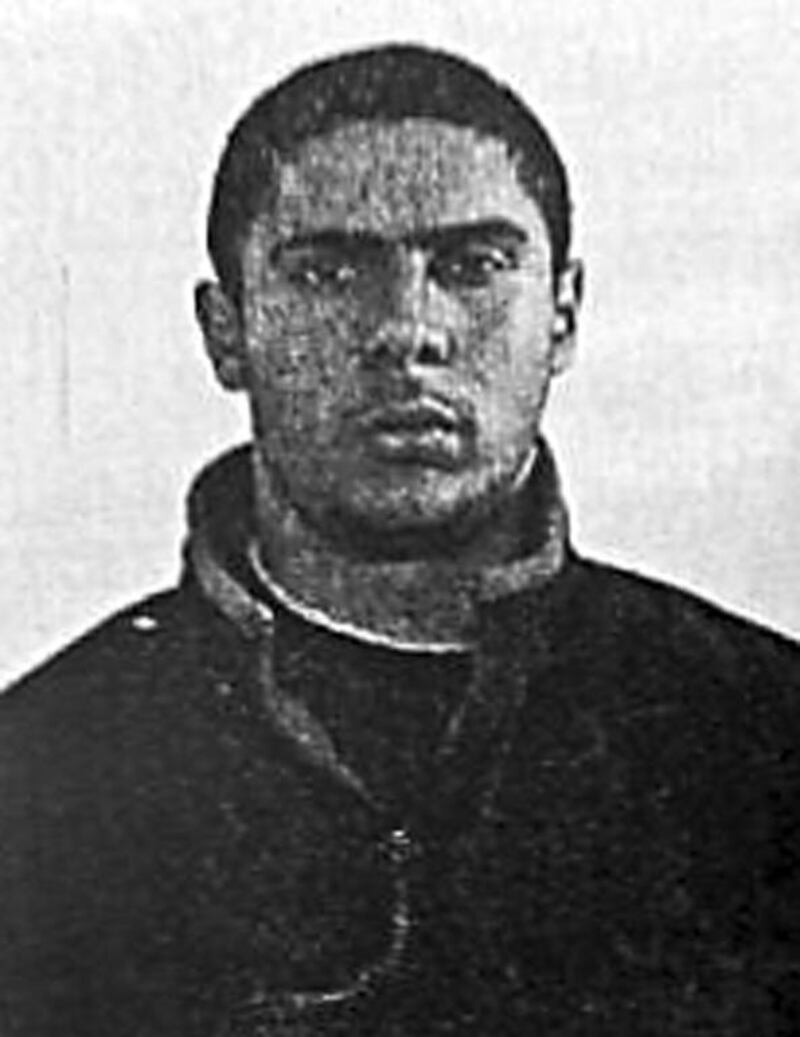A man accused of being the first foreign fighter to return from Syria and carry out an attack on European soil is due to stand trial today over the murder of four people at the Jewish Museum of Belgium.
It took only 82 seconds for Mehdi Nemmouche to shoot dead the victims in Brussels on May 24, 2014 in an attack that set a disturbing precedent across the continent.
The Frenchman, of Algerian origin, was captured by the security services in Marseilles six days after the assault, still carrying weapons.
Among his possessions was a recording of a man sounding like Nemmouche declaring support for ISIS and pre-emptively claiming the anti-Semitic museum attack.
During his time in Syria from 2013 to 2014, Nemmouche, 33, is said to have spent time acting as a jailer of French journalists who were held captive near Aleppo but released in April 2014. Some of these former hostages are expected to be among at least 100 people to give evidence.
When one of the reporters, Nicolas Henin, was released he said he recognised Nemmouche’s voice and believed the French-Algerian helped torture Syrians held in the same detention centre. Many of those imprisoned alongside Henin, such as the American journalist James Foley, would later be beheaded by British ISIS member Mohammed Emwazi.
Nemmouche, who will face life in jail if convicted, is to stand trial alongside Frenchman Nacer Bendrer, 30, who is accused of supplying the weapons used in the Brussels attack. Bendrer spoke in a Brussels court on Monday only to confirm his name, age and current status as unemployed in a short session before jury selection.
While in Syria Nemmouche was said by investigators to have met Najim Laachraoui, one of those involved in bombings in Brussels that killed 32 people in 2016. This cell is also accused of being behind attacks such as in Paris in November 2015 in which 130 people died.
Nemmouche’s journey from a difficult upbringing, to petty criminality then jail and radicalisation is typical of many of those who fight and die for ISIS – whether in Syria, Iraq, Europe or elsewhere.
The ease with which he made it to Syria despite authorities being aware of his extreme views while jailed is part of a common pattern.
Between December 2007 and December 2012, Nemmouche spent five years in jail after a childhood punctuated by criminality. Here, investigators said, he proselytised and associated with those holding extreme views.
He had a troubled upbringing riddled with crimes such as theft. He never met his father and was born in the town of Roubaix in northern France to a mother who was judged unfit to raise him. As such, from only a few months old until 16 he spent time with a foster family in Lille but also his grandparents and in care homes. His foster family described him as angry and “capable of the worst as well as the most kind” actions, AFP reported.
Three months in a young offenders’ prison after an attempted mugging with an air pistol at the age of 16 precluded years of similar criminality that would lead to his five-year stint in jail beginning in 2007. Less than a month after he was released he was bound for Syria.
According to a report by the defence and security think tank Globsec, 97 per cent of those involved in the 22 successful terrorist attacks in France since 2012 had been identified as radicals or were known to the police.
Almost half had previous convictions and 19 per cent were repeat offenders, including Nemmouche.
_______________
Read more:
Charlie Hebdo suspect arrested in Djibouti
Swedish police arrest man said to be preparing attacks
British doctor suspected of radicalisation demands right to return from ISIS ranks
_______________
Another with a long history of criminal activity was Cherif Chekatt, who killed five people at a Strasbourg Christmas market in December last year before being shot dead two days later.
So too were the Kouachi brothers Said and Cherif, linked to Al Qaeda, who stormed the French satirical publication Charlie Hebdo four years ago armed with assault rifles, killing 12 and injuring 11.







